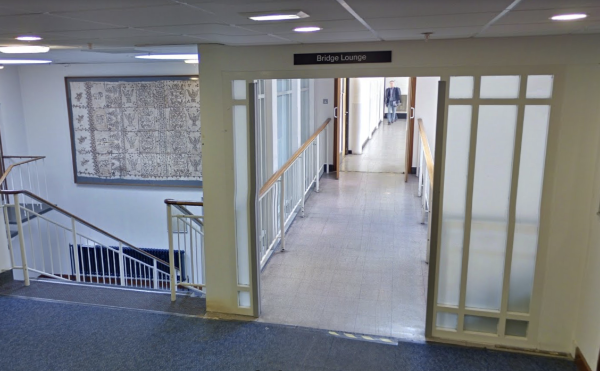This might be the single most obscure piece of contract trivia you hear today, what with all the many pieces of contract trivia you come across every week. What could push it over the top into being the most obscure, though, is that it’s possibly also wrong. It definitely used to be true, though, so please give me that. And it’s this.
There is or was a financial difference between adaptation and dramatisation.
Strictly speaking, if you are hired to turn a novel into a TV show or film or theatre or radio, you are dramatising it. You are taking it from the page and bringing it into a dramatic form.
Adaptation is taking something from one dramatic form and turning it into another, or more recently, turning it into another version of the same thing. The 2021 film of West Side Story is an adaptation of the 1961 movie, which itself is an adaption of the 1957 stage musical, which is itself an adaptation of Shakespeare’s Romeo and Juliet from just a little bit before then.
As I say, I don’t know if there is still a difference in how much you get paid, but the job itself, the reason there are these two terms, that’s definitely still true, they are still definitely very different.
Dramatisation is like improv in how everyone new thinks they can do it. I’ve never done one, although at times I’ve pitched things: I’d like to see Margery Allingham’s Campion novels dramatised again, for instance, or James Blish’s Cities in Flight. Not because I think they’d be easy, not because I know I could do them, just because I want to watch, to spend more time in the worlds those authors created and I want to bring them to new audiences.
All of which is on my mind because I’ve been waiting all week for the next episode of Slow Horses on Apple TV+. Based on the book by Mick Herron, it’s dramatised by Will Smith, one of the writers of The Thick of It and Veep.
The show is made by See-Saw Films and I talked with them about a thing last year. It didn’t happen to work out, but along the way they told me they were making this and it sounded good, so from curiosity, I read the first novel in the series. Then the second. Third. Fourth. All of them. I’ve forgotten how many there are, they’ve rather run into one since I read each so close together, but they are very good, and I think that over the years, they have been badly misrepresented.
I mean in how the novels have always been described in articles about the books. Every article, every interview with author Herron, it all says that these are comedies about inept spies and that is so far from the truth that I sometimes wonder if I’m reading the same books. It reminds me of Brian Fremantle’s Charlie Muffin spy novels. ITV presented that as being a comedy, but you watch the Euston Films production written by Keith Waterhouse, and it is more tense than anything. I don’t just mean more tense than funny or anything else, I mean it’s also more tense than, say, James Bond ever gets.
Slow Horses has that tension. It is about these MI5 spies who’ve been banished because they did something so bad that they can’t continue working in the field, but not quite so bad that they could be fired. And some of them are indeed there because they did stupid things. The books are funny, sometimes laugh aloud funny, but the laugh is often a surprise in the middle of really fraught, tense, quite scary action.
I also began wondering whether the TV dramatisation would actually be a comedy, not just promoted as one, truly being one. I’ve read scripts before where on the page I’ve found them stark and tense, then on screen they manage to be that plus somehow a lot funnier. Maybe I was missing the gag in Herron’s novels.
Yet the strengths of the Slow Horses books for me, the reason I keep coming back for more, are partly that the characters and the story are compelling, but also that everything balances on this sliver of a knife edge between action and drudgery. The Slough House setting is oppressive in the books, quite vividly deadening, and held back from total shut-the-book boredom by solely the thinnest of lines.
I’m freelance so it is a very long time since I worked in an office, yet still the Slow Horses novels capture for me the atmosphere of a dreadful office on a worse day and the feel of it is like stupefying inactivity in 3D. Then suddenly – but, significantly, also naturally – there will be these moments of great action and suspense.
So just enough boredom to convey the purgatory these characters are in, just enough action to keep you compelled, the novels are remarkable for holding this tone and these changes so well. It’s really an accomplishment how the novels keep you believing this central idea that nothing happens at Slough House when, over and over again, a huge amount happens there.
I’m less keen on how too many characters in the novels are clearly based on familiar ones from other spy or crime stories. Not all of them, by no means all of them, but for instance there’s one recurring character who the moment you read about her, you know is Connie Sachs from Tinker, Tailer, Soldier, Spy. More specifically, she starts out as the Beryl Reid portrayal of Sachs in the BBC dramatisation.
And then there is the lead character, Jackson Lamb, played by Gary Oldman in the TV dramatisation. Reading the novels, there’s no mistake: Jackson Lamb is Andy Dalziel from Reginald Hill’s Dalziel and Pascoe novels. Author Mick Herron has said so, publicly, and I didn’t need him to, it was that obvious.
I don’t think it is obvious in the TV show. Now you know, you’ll see if it you know the earlier character, but I think Will Smith’s dramatisation has done him better. He’s done the drudgery versus action superbly so far, too, and he, director James Hawes and production designer Tom Burton, have also conveyed that horrible Slough House building so well that we are intimately clear on even its very geography.
What I’m not sure about yet is whether Smith has done Roddy Ho well, or whether anyone actually can. Ho is the Slough House hacker character and in the novels, he is a joy because typically segments about him are in the first person and Ho believes himself to be a god amongst men. Herron shows us mortifying moments where Ho is embarrassed and even punched in the face, but does it through Ho reinterpreting those events as if he’s the hero. When people go quiet around him through revulsion, for instance, internally he’s crowing about how they are clearly awed into silence by his brilliance.
Again, it’s a great gag and the greatest thing about it is how Herron can keep going back to the same well and utterly delighting you every time.
But it is strong because it’s first person internal monologue and I don’t know if Smith can bring that out. In the first two episodes, I think he’s done a clever job of conveying this stark difference of opinion about Ho, between what Ho thinks of himself and what everyone else thinks of him, but maybe that’s the most that can be done.
I’m not watching this to study it all, though. Just as with the novels, I tried the first one out of curiosity, but I’m hooked, I’m watching this show because I like it enormously.
In fact, mostly I’m now waiting for episode 3 to find out what happens with Sid Baker and I’d like you to explain to me why I’m so anxious about her when I’ve already read the novel this is based on. Plus the – wait, let me check – grief, seven more novels after it. An eighth comes out later in 2022 and I’ll be having that.
Slow Horses, the TV drama by Will Smith, is the same story, literally the same story, as Slow Horses, the novel by Mick Herron.
The difference is, it’s been dramatised.

